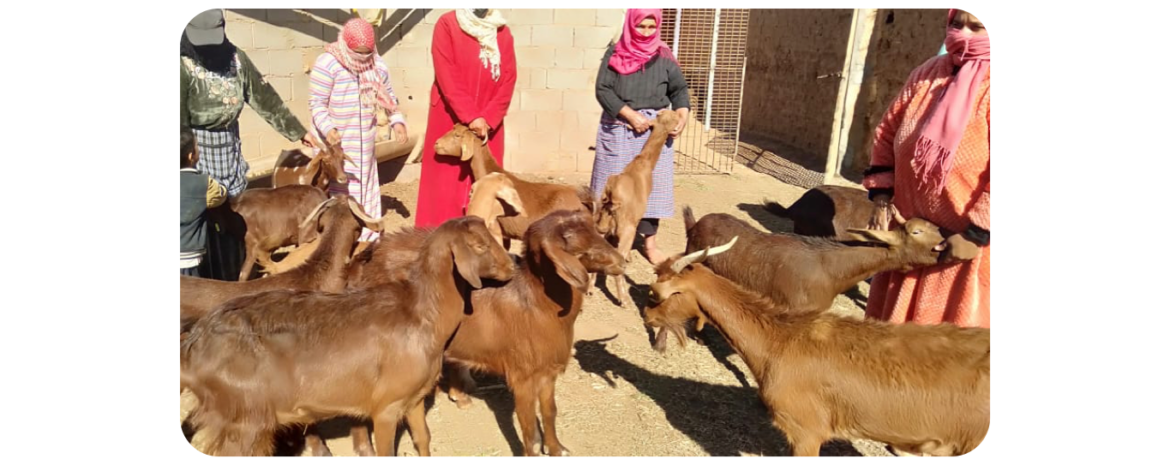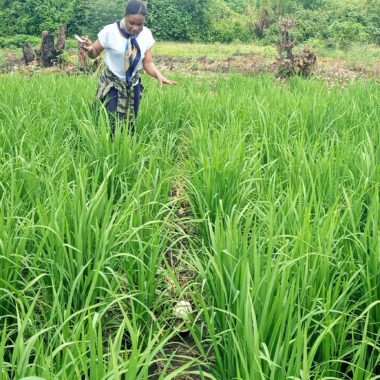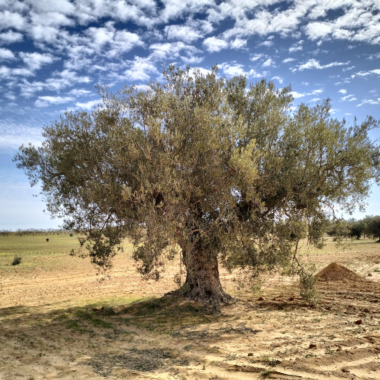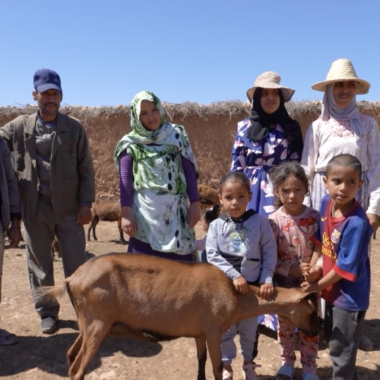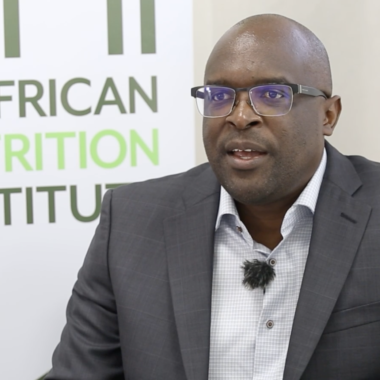New Project Focusing on Strengthening Links of Goat Milk Production Value Chain in Morocco
In the R’hamna region of Morocco, goat farming predominantly relies on its extensive rangelands for the production of fodder materials such as barley grain and straw needed in both summer and winter months. This rangeland fodder production is heavily dependent on the amount and distribution of rainfall each year. More frequent and extended drought has left these farmers increasingly vulnerable to a series of forces that are the focus of a new project initiated by APNI and its local implementing partner R&D Maroc.
Moroccan Green Plan: a new paradigm
Beginning in 2016, as a result of the influence of the Moroccan Green Plan, a significant shift towards the development of more intensive goat milk production systems gained traction in the country. Government investment of 20,560,000 Dh for an initial project involving the Bladi Cooperative led to the distribution of 1,386 female goats and 76 male goats to 426 women in seven communities. However, three subsequent years of drought due to the scarcity of the rain reduced the availability of fodder feed and ultimately reduced the numbers of goats by almost 50%.
A follow-up project established in 2019 involved a group of five goat milk-producing cooperatives. This new project was implemented by the Provincial Directorate of Agriculture (DPA) with an investment of 5,666,000 Dh that distributed over 800 female goats and 56 male goats to 210 beneficiaries. The project also distributed hydroponic barley growing units to some of the cooperatives as a means of increasing forage supplies. However, no milk has been produced for sale to date, but instead is used to nourish any new-born goats.
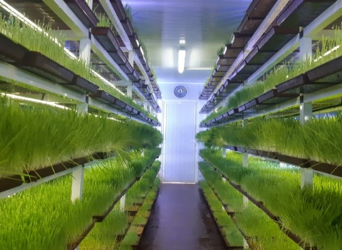
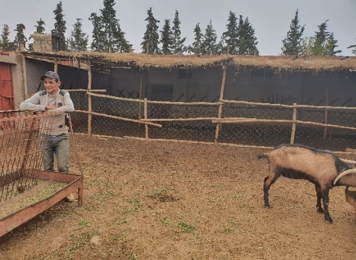
A view of a hydroponic barley production unit used to supplement the fodder supply to goats in R’hamna.
New APNI Project on Value Chain Resilience in Morocco and Senegal
In December 2020, a kick-off meeting for a new APNI Project on “Enhancing the Resilience of Smallholder Farms in North and West Africa through Upgrading of Women Managed Milk Value Chains,” was organized by R&D Maroc (the regional research implementation partner in Morocco). The project is being carried out with the financial support of the International Development Research Centre (IDRC) in Ottawa, Canada.
The objectives of the event in Morocco were:
- To gather the project’s stakeholders to discuss the project’s objectives, its expected results, and its approach to achieving them;
- To inform stakeholders about the design, financing and implementation of the project; and
- To acquaint participants with current state of goat milk value chain in the R’hamna region.
Participants included:
- The local authority represented by the adviser to the Governor of the province;
- The Provincial Directorate of Agriculture (DPA) represented by the livestock department head;
- The Director of the National Office of Agricultural Extension (ONCA);
- The Director of the National Office for Health and Food Safety (ONSSA);
- Representatives of the Office Chérifien des Phosphates (OCP);
- The President of the Bladi Cooperative;
- A team of experts from Morocco R&D including the project coordinator, a fodder expert, a socio-economist, and a food technologist; and
- Representatives of the African Plant Nutrition Institute (APNI).
Key Outcomes and Decisions
It appears the goat milk value chain in the R’hamna Region shows signs of dysfunction that will need to be addressed at various links within chain. The meeting’s discussions revealed that the links of the value chain are not well connected. Each link has different constraints related to forage production, milk production, and dairy processing. An in-depth diagnosis is necessary to assess local knowledge, processes, mechanisms, and products in goat milk production and marketing systems in the R’hamna Region.
The meeting’s pre-diagnosis helped to highlight the salient aspects of this region’s goat milk value chain, but it does not allow definitive conclusions to be drawn, nor recommendations to be made. One major constraint to this value chain could likely be inadequate fodder supply, which is exacerbated by drought in recent years despite the establishment of intensive hydroponic feed barley units that are currently in place.
Focus of the New Project
APNI initiated this project in Morocco in collaboration with R&D Maroc to understand the goat milk value chain, identify the nodes and develop business models focused on opportunities for improved income streams and sustainability. The project emphasizes both climate-specific and gender-specific interventions that can address the vulnerability of family farms in Morocco to global and local forces of climate change, land degradation, economic power imbalance, market shocks, and the exclusion of rural women from participating in the development of more resilient local solutions to these problems.
More information and updates on project milestones can be found at: https://apni.net/project/dairy-shcs-01/
About the Project Partners
APNI (https://apni.net) is a not-for-profit research and development organization headquartered in Benguérir, Morocco. Its continental vision is prosperous African farmers sustainably managing crop nutrition to provide consumers with a secure supply of nutritious foods at a reasonable price.
R&D Morocco (http://rdmaroc.com) has the general mission of initiating, promoting and energizing innovation and research and development in Moroccan companies in the productive sector.
IDRC (https://idrc.ca/) and supports high-quality research in developing countries, shares knowledge with researchers and policymakers to inform local and global action, and mobilize alliances to drive global positive change as part of Canada’s foreign affairs and development efforts.
APNI Contributors: Sudarshan Dutta, Scientist and Work Group Leader – Soil Health Livestock System; Gavin Sulewski, Editor, and Thomas Oberthür, Director of Business and Partnerships.

